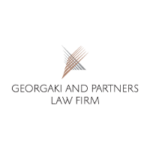-
What are the key rules/laws relevant to M&A and who are the key regulatory authorities?
Depending on the type of deal, two key laws that will always be applicable would be the Romanian Civil Code (in case of asset deals, but also generally) and Companies Law no. 31/1990 (in case of share deals) (the “Companies Law”). In addition, depending on the specifics of the transaction, some other laws may as well be applicable (e.g. Competition Law no. 21/1996, Government Emergency Ordinance 46/2022 on foreign direct investments, Insolvency Law no. 85/2014, as well as industry – specific laws).
As regards key regulatory authorities, we note that there is no such authority that is automatically implied in the M&A process, but rather such are determined by the specifics of the transaction (e.g. Competition Council, National Agency for Mineral Resources, National Broadcasting Council, etc.). Also, M&A deals that qualify as foreign direct investments (FDI) or EU investments, as defined under the Romanian law on FDI, are subject to the scrutiny of the Commission for Examination of Foreign Direct Investments (“CEISD”).
Apart from the general legislation outlined above, the key rules relevant to public M&A are Law 24/2017 on issuers of financial instruments and market operations (“Issuers’ Law”), as such was recently amended, implementing, in Romania amongst others, Directive 2004/25/CE (the “Takeover Bids Directive”) and its relevant implementing norms (i.e., FSA Regulation no. 5/2018 on issuers of financial instruments and market operations). In connection with aspects related to inside information and prohibitions related to unlawful use of inside information, including insider trading, apart from the Issuers’ Law, the EU Market Abuse Regulation is also directly applicable.
Recently the Issuers’ Law was subject to two substantial sets of amendments, including under Emergency Ordinance 71/2024 and more recently, under Law 11/2025, which came into force on 15 March 2025. Some of the recent key amendments include provisions aimed to: (i) implement certain provisions of the Women of Board Directive 2022/2381 and of the Corporate Sustainability Reporting Directive 2022/2464 (CSRD), as well as (ii) implement certain matters covered by the National Strategy for the development of the capital markets (including, simplifying capital raising via share capital increase by shortening certain legal terms, including the one related to the exercise of the preference right).
The key regulatory authority for public M&A deals is the Financial Supervisory Authority (“FSA”). Sector-specific regulations apply if the target is a regulated company (e.g., if the target is active in the banking, insurance, financial services industries etc.), which may trigger the involvement of other competent authorities, such as the National Bank of Romania.
-
What is the current state of the market?
Throughout 2024, global M&A has gradually rebounded despite a slower than expected economic recovery, persistent geopolitical tensions, and regulatory constraints. Regardless of such challenges, Romanian M&A activity seems to have defied global and regional trends in 2024, demonstrating resilience and a very good performance once again, supported by strong investor interest and an active deal-making environment.
On the capital markets unlike, 2023 which was an exceptionally good year, marked by the 1,9 bn EURO Hidrolectrica IPO (the largest in the EU, and one of the largest worldwide in 2023) and a record increase of the Bucharest Stock Exchange’s capitalization (at 300 bn RON, the highest in its history), 2024 was marked by a slowdown especially as regards equity capital markets transactions and the first part of 2025 is unlikely to bring major changes. Even if short term prospects are not likely to fundamentally change, the mid- and long-term prospects should look more optimistic. Several aspects are likely to influence this cautiously optimistic outlook, including (i) the Government’s commitment under the EU National Recovery and Resilience Plan to list 3 major state-owned enterprises by 2026, (ii) the ongoing implementation of the Financial Surveillance Authority National Strategy for the Development of the Capital Markets, (iii) the efforts to ensure accession to the OECD by 2026. Additionally, the EU measures to be taken to increase competitiveness, including under the newly issued Savings and Investment Union are likely to stimulate growth in the capital markets area.
-
Which market sectors have been particularly active recently?
We have seen steady and continuously evolving M&A activity in sectors such as renewable energy, IT, retail, banking services, as well as real estate and construction (some categories more than others), showcasing the growth of the Romanian market as a strategic destination for a diverse range of investments.
On the public M&A side, generally, the most active players have been the top investment companies listed on the Bucharest Stock Exchange (particularly in connection with tender offers conducted as part of their buy-back programs); but companies from a variety of industries (e.g., asset management, construction, pharmaceuticals, chemical production, ship construction and repair etc.) were also subject to takeover bids.
The sectors regarded favourably under the EU financing packages are expected to see significant dynamism over the next period (as is, particularly, the energy sector, which sees some European regulatory support in the context of the economic sanctions applied to Russia and the identified need of further development of new energy sources), while others will face more of a wait and see approach or be subject to restructuring and diversification-type acquisitions.
-
What do you believe will be the three most significant factors influencing M&A activity over the next 2 years?
In essence, mainly money flows (including with respect to the implementation of the resilience plan), good country governance (including with respect to the Ukraine conflict) and the management of inflation.
Thus, the sectors directly or indirectly favoured by resilience plans will likely see a significantly higher activity than others (although the overall flow of available deals may not be sufficient from the start to fully offset the ones that could be generated by all sectors).
Policies stability, predictability and openness to business and entrepreneurship in general will continue to remain an important factor.
On the other hand, the conflict in Ukraine compounds to the still-suffering effects of COVID-19 and climate change on the world economy by driving up inflation, further disrupting supply chains, and raising cybersecurity vulnerabilities.
As such, buyers and sellers should prepare for more intensely negotiated purchase prices, alternative payment options (perhaps replacing cash with other equitable assets), and longer exclusivity periods as inflation continues to climb.
-
What are the key means of effecting the acquisition of a publicly traded company?
Generally, acquisition of a publicly traded company is performed through public takeover bid or by a merger. The public takeover bid is essentially subject to the provisions of the Issuers’ Law and its implementing norms, which regulate the procedure for the conduct of such offers under the supervision of the FSA, including the mechanism for the determination of the fair price to be offered by the bidder.
Romania already has a significant experience in this respect.
-
What information relating to a target company is publicly available and to what extent is a target company obliged to disclose diligence related information to a potential acquirer?
Basic information on the target company such as the identification data of the company, type of corporation, corporate purpose, its share capital, directors, financial data are publicly available in the Trade Registry and Ministry of Finance, with both databases accessible online.
Additional public information regarding the real estate assets of the target (e.g., ownership over the assets, status of the encumbrances, including mortgages) can be found in the public Land Book registry. Information regarding the security over the movable assets of the target company can be found in a public online data base National Registry of Movable Publicity.
With respect to publicly traded companies, the Romanian legislation transposed in substantial respects relevant EU directives, including the Transparency Directive 2004/109/EC as amended. On the basis of the relevant legislation, listed companies have the obligation to make available to the public and FSA periodic reports (annual, quarterly, half-yearly reports, etc.) as well as ad-hoc reports. As such, these reports shall include any material information for investors to make a grounded assessment of the company’s activity, profit or loss and indicate any particular factors that have influenced these activities. With regard to the annual reports, they also include the financial statements of the listed company, as well as non-financial sustainability reporting, if such is applicable to the respective issuer in line with CSRD.
Companies listed on the regulated market must also comply with the reporting obligations laid down in the Bucharest Stock Exchange Code as well as the obligation to comply with the Corporate Governance Code of Bucharest Stock Exchange (on a comply or explain basis). The Bucharest Stock Exchange has issued a revised Corporate Governance Code, applicable to issuers as of 1st January 2025. The first compliance reporting year applicable to the companies whose shares are admitted to trading on the regulated market will be 2026, corresponding for the financial year 2025.
There is no legal obligation as such of a target company to disclose diligence related information to a potential acquirer, but it must comply with the mandatory reporting requirements as we mentioned above.
In private deals, the seller generally discloses the information requested by the acquirer under the due diligence exercise. However, under Romanian law, the parties are bound to act in good faith, therefore, certain situations might exist where the seller might be obliged to actively disclose information to the acquirer, even though it was not specifically requested.
-
To what level of detail is due diligence customarily undertaken?
With respect to public M&A deals, in addition to due diligence based on public information, it may also be possible for the potential acquirer to have access to some non-public and price-sensitive information (especially in case of non-hostile takeover bids), subject to compliance with the market sounding regime set out under the EU Market Abuse Regulation thereunder, as such has been amended under the EU Listing Act. As a matter of principle, a public takeover bid must be carried out under terms and conditions which will ensure equal treatment of all investors.
Given that the Romanian competent authorities have not issued official guidelines on the establishment of data rooms in relation to public M&A deals and disclosure of inside information in this context, disclosure of non-public and potentially price-sensitive information in data rooms set up for due diligence purposes should be treated with particular care, with strict observance of the applicable rules, including EU Market Abuse Regulation.
On the private side, the level of detail of due diligence exercises typically depends on the deal’s specifics (e.g. competitive process or not, share vs asset deal, size, competition law, national security law or GDPR-related constraints, any circumstances which are less common to the day-to-day business life of companies).
More often than not, the scope of the due diligence is limited to finding ‘red flags’ in matters covering the title to shares/material assets, financing arrangements, material agreements, licenses & permits including environment, employees, ethics &compliance, competition law, data privacy, IP, IT&C, disputes of the target company, other material aspects.
-
What are the key decision-making bodies within a target company and what approval rights do shareholders have?
The key decision-making bodies within a target company with one tier management system are the board of directors and the managers if the board of directors has delegated to them the management of the company. If the target company is managed in a two-tier management system, the key decision-making bodies are the supervisory board and the directorate.
However, there are situations in which the general meeting of shareholders of the target company is also involved. For example, such a situation is met in the context of a voluntary takeover bid, when the board of directors may convene the general meeting of shareholders to present their position with respect to the bid. Also, if a significant shareholder requests the convening of the general meeting of shareholders in the context of a voluntary takeover bid, the board of directors is obliged to act accordingly.
Within a voluntary takeover bid, the general meeting of shareholders of the target may approve the operations that may affect the patrimony of the target or the objectives of the takeover bid, such operations being prohibited to directors after receiving the preliminary announcement regarding the takeover bid.
In public M&A deals, there are no express requirements regarding the approval of the transfer of shares by the company’s shareholders, such transfer being conducted based on the stock exchange mechanism.
In addition to the general approval rights of shareholders applicable to private companies, the directors of listed companies need the approval of the extraordinary general meeting of shareholders for certain material transactions. Specifically, such approval is required for the acquisition, sale and exchange or providing a guarantee over fixed assets of the company, whose value exceed, individually or cumulatively, during a financial year, 20% of the total fixed assets, less the non-current receivables. The approval of the shareholders is also required for the lease of tangible assets for a period of more than one year, having an individual or cumulative value in relation to the same contractor or persons involved or acting in concert which exceeds 20% of the value of the total fixed assets, less the non-current receivables.
In private deals the general meeting of the shareholders of the target company is the highest decision-making corporate body. The Companies Law provides various majority requirements for approving certain types of transactions, as well as for amending the articles of association of a company, but the shareholders are free to derogate from some of the majority requirements in question. In some cases, the shareholders may only derogate from them by approving stricter majority requirements than those provided under the Companies Law.
There are cases where the other party prefers to have such approvals in place even if their legal need as such is far from obvious.
-
What are the duties of the directors and controlling shareholders of a target company?
The directors of private companies have the general obligation to act in the company’s best interest, and to refrain from making decisions while finding themselves in conflicts of interest. All shareholders (including controlling shareholders) must not vote for any decision in relation to which they have interests which are contrary to the company’s.
In addition to the general duties of directors applicable to all companies outlined above, with respect to listed companies, directors have specific duties to comply with the legal provisions applicable to such companies, including:
- disclosure obligations (of periodical and ad-hoc reports), as well as
- specific obligations to convene the general meeting of shareholders (e.g., at the request of significant shareholders including in the context of a takeover bid announcement). Unless the general meeting of shareholders is convened in the specific cases provided by the Issuers Law (e.g., at the request of the board of directors or of a significant shareholder), generally, shareholders to not intervene in connection with takeover bids;
- obligation to prepare its opinion on the on the consequences of the offer on the target company’s interest, current employment and strategic plan and submit it to the FSA, the bidder and the regulated market where the securities are traded.
In case the bidder is a listed company, its directors have duties related to ensure the reality, accuracy and precision of the information included in the offering document.
The overall number of obligations and responsibilities is quite significant, but it is rather rarely that they generate major issues in practice.
-
Do employees/other stakeholders have any specific approval, consultation or other rights?
According to the applicable laws, the employer has the obligation to inform and to consult the employees’ representatives as regards: (i) the recent and the potential evolution of the company’s activities and its economic situation; (ii) the situation, the structure and the probable evolution of the work force occupation within the company, as well as in connection with the envisaged potential anticipation measures, especially where there is a threat to the job positions; (iii) the decisions that may lead to important changes in the work organization, contractual relationships or employment relationships, including (but not limited to) situations of mergers, acquisitions, collective dismissals, protection of employees’ rights in case of a business transfer, etc.
In case of a business transfer, a specific information and consultation procedure of the employees’ representatives/employees needs to be performed by both, the seller and the buyer, prior to the transfer date, with the observance of the legal deadlines.
However, no approval from the employees’ representatives or the employees is required for the transaction or the business transfer to take place.
Also, the implementing norms of the Issuers’ Law regulate in detail the manner in which the employees’ representatives or directly the employees of the target company are informed about the intention to carry out a takeover bid (the preliminary announcement), the opinion of the board of directors of the target in respect of the takeover bid (see also answer under question 9 above) and ultimately the offering document.
Following receipt of the board of directors’ opinion, the employees’ representatives/directly the employees are entitled to present their own opinion with respect to the effects of the bid on their jobs; in case this opinion is submitted in due time to the board of directors of the target, this opinion shall be attached to the opinion that the board of directors has the obligation to submit to the FSA, the bidder and the regulated market where securities are traded.
-
To what degree is conditionality an accepted market feature on acquisitions?
The legislation applicable in public M&A deals, does not regulate the possibility of making conditional takeover bids, specifying only that during the offer period the bid is irrevocable.
However, by way of interpretation, objective conditions that do not depend on the subjective conduct of the bidder such as reaching a minimum threshold in a voluntary takeover bid or obtaining any clearance/approval of the relevant authorities (e.g., competition authority clearance) should be deemed acceptable. In any case, it is recommended to analyse this aspect by reference to a specific transaction.
On the other hand, private M&A deals are very often subjected to conditions precedent to the closing of the transaction. Sometimes, where certain conditions precedent have not been met but parties still want to proceed with the transaction, but not willing to discard the conditions though, such conditions may turn into conditions subsequent (however, this is far from ideal in M&A projects).
-
What steps can an acquirer of a target company take to secure deal exclusivity?
In relation to public M&A deals, as of the publication of the offering announcement and until the finalization of the offering, the directors of the target are prohibited from concluding any added or taking any measure that may affect the patrimony of the target or the objectives of the takeover bid, except for ordinary management measures. Additionally, the Issuer’s Law imposes the obligation to ensure that the takeover bid is carried out with the observance of the equal treatment principle for all investors and regulates the conditions whereby competing bids are organized. Consequently, considering all of the above, generally, offer-related arrangements aiming to secure exclusivity of the deal do not seem to be difficult to structure for public M&A deals.
In private transactions, deal exclusivity is often secured in advance of entering the definitive transaction documents, typically through head-of terms, term sheets (or similar) documentation. The extent of the exclusivity restriction (e.g., whether the seller is prevented to negotiate with third parties, or just to close the deal with third parties) is dependent upon the parties’ agreement.
-
What other deal protection and costs coverage mechanisms are most frequently used by acquirers?
Deal protection mechanisms, including break-fees are not expressly regulated under the applicable law. Considering the obligations imposed by the Issuer’s Law, including the obligation to observe the equal treatment of all investors as well as in order to give effect to the possibility of potential competing bidder to make an offer, in a prudent interpretation the customary deal protection mechanism generally applicable to private M&A deals are not available for public M&A deals.
However, even if access to break-fees is more facile in case of private deals, such fees are not seen very often. In addition, the parties are bound to act in good faith and may be liable for any damage caused by entering negotiations with no intent to close the deal (but the occurrence this type of situation in practice is quite limited).
-
Which forms of consideration are most commonly used?
In public M&A deals, although the legislation regulating takeover bids allows for the bidder to offer cash, or a combination of cash and securities, the commonly used consideration is cash. In the scenario where the bidder offers cash and securities in exchange, the bidder of a public exchange offer must also propose a cash alternative for the securities offered in exchange, so that the investors can opt to receive either cash, securities or a combination of the two.
Likewise, cash consideration is typically preferred in private deals or, rarely, shares swap.
-
At what ownership levels by an acquirer is public disclosure required (whether acquiring a target company as a whole or a minority stake)?
In line with the provisions of the Transparency Directive, as amended, the Issuers’ Law, imposes disclosure of material shareholding where a shareholder acquires or disposes of shares of an issuer listed on a regulated market and to which voting rights are attached, if the percentage of the voting rights held following the acquisition or the disposal concerned, reaches, exceeds or falls below certain materiality thresholds. The relevant thresholds triggering disclosure requirements are any one of the following: 5%, 10%, 15%, 20%, 25%, 33%, 50% and 75% of the voting rights (computed on the basis of all the shares to which voting rights are attached, even if their exercise is suspended) of the issuer.
The disclosure obligation also applies where the relevant thresholds are reached either directly or indirectly by holding:
- financial instruments that, on maturity, give the holder, under a formal agreement, either the unconditional right to acquire or the discretion as to his right to acquire, shares to which voting rights are attached, already issued, of an issuer whose shares are admitted to trading on a regulated market;
- financial instruments which are not included in point above but which are referenced to shares referred to in that point and with economic effect similar to that of the financial instruments referred to in that point, whether or not they confer a right to a physical settlement.
If the above-mentioned thresholds are reached, the relevant shareholder must notify the issuer. A notification must also be sent to the FSA (if Romania is the home member state of this issuer) in Romanian or a language of wide international financial circulation, within four trading days. Also, the notification must be made public by the issuer within three working days of its receipt.
Additionally, in case the 33% threshold is exceeded, either on an individual basis or together with other persons acting in concert, the shareholder(s) reaching such threshold has/ have the obligation to launch a mandatory takeover bid, unless the bidder can rely on an exemption.
On the private side, no public disclosure per se is required. However, the transfer becomes public once the formalities mentioned in Section 22 are performed. The Competition Council may also disclose an ongoing transaction by asking for the market opinion on the subject matter of a merger control filing.
-
At what stage of negotiation is public disclosure required or customary?
With respect to public M&A deals, disclosure of information must comply with the EU Market Abuse Regulation. Therefore, the target company must make a case-by-case analysis and decide at what stage of negotiation, non-public information is accurate enough to qualify as inside information subject to disclosure requirements. As per the Issuers’ Law, the listed company must disclose any inside information as soon as possible, but no later than 24 hours as of the event or after the date when the information is brought to its attention.
In certain situations, as provided in EU Market Abuse Regulation, the issuer may delay, at its own responsibility, disclosure of inside information to the public, subject to the observance of the following conditions:
- immediate disclosure is likely to prejudice the legitimate interest of the issuer;
- delay of disclosure is not likely to mislead the public;
- the issuer is able to ensure the confidentiality of that information.
The Issuers’ Law regulates strictly the timing for the conditions of publication of the takeover bid announcement and of the offering document. As such, in the case of a voluntary takeover bid, the offeror must submit to the FSA a preliminary announcement, and, if approved by the FSA, the announcement must be sent to the target company and the regulated market where the securities are traded and must be published in at least one central and one local newspaper within the issuer’s local area.
Following the publication of the preliminary announcement, the bidder must submit the documentation related to takeover bid to the FSA within 30 days. The FSA will decide on approval of the offer document within ten working days.
Customarily, in private deals only the signing and/or closing of the deal is made public.
-
Is there any maximum time period for negotiations or due diligence?
For public M&A transactions, there are no specific time periods specified for negotiations or due diligence. The Issuer’s Law only regulates the timetable of the takeover bid procedure.
Likewise, in the case of private transactions, there is no regulated time period for conducting the negotiations or the due diligence. However, the parties generally undertake ambitious deadlines (2-3 months for reaching a definitive agreement as from the signing of the term sheet, or slightly longer if regulatory approvals are involved).
-
Is there any maximum time period between announcement of a transaction and completion of a transaction?
The timeframe for completing a business acquisition or sale in non-public M&A deals depends on multiple factors, including whether the transaction involves a share deal or an asset deal, the legal structure of the target company (limited liability or joint-stock), and the chosen acquisition structure. Additionally, regulatory approvals play a significant role, particularly if the transaction is subject to merger control (and if only phase I or phase II), or if it falls under the scrutiny of the CEISD. Moreover, any outstanding debt recorded in the Romanian investor’s tax record (in Romanian, cazier fiscal) could further impact the timeline.
Beyond these structural and regulatory considerations, certain transactions may require additional prior clearances, particularly in industries such as natural resources, which could naturally extend the process. The M&A activity has also been shaped by evolving business practices, with the transaction timeframe influenced by shifting dynamics – while in-person meetings have increased since 2023 compared to pandemic levels, online meetings remain a key element of transactions in 2024, enhancing efficiency and reducing logistical challenges.
Additionally, when comparing a share deal to an asset deal, the latter can often extend the transaction timeframe due to the additional administrative steps involved. While an asset deal may be beneficial for the buyer in terms of liability, since liability generally remains with the seller rather than transferring with the assets, the process can be more cumbersome and time-consuming. This is because certain licenses may need to be renewed or reissued to the new owner, registrable assets may require individual re-registration, as well as the assignment of contracts, all of which can delay the completion of the transaction.
Overall, in private M&A transactions, the period between announcement and completion varies based on transaction complexity, regulatory requirements, and negotiation dynamics. While there is no statutory maximum period, the timeline could also be influenced by the fulfillment of conditions set forth in the Sale and Purchase Agreement (SPA), including due diligence completion and necessary regulatory or financial approvals. In particular, transactions in highly regulated sectors such as financial services and energy may face longer approval processes due to industry-specific legal requirements, competition rules, and antitrust considerations. As regards takeover bids, the timeframe and procedural steps are strictly regulated by the Issuers’ Law and the implementing norms adopted by the FSA. The statutory term for carrying out a takeover bid cannot be lower than 10 business days or greater than 50 business days. The takeover bid must be launched within maximum 10 business days as of the publication of the bid announcement.
-
Are there any circumstances where a minimum price may be set for the shares in a target company?
According to the FSA Regulation no. 5/2018, as a rule, the public purchase bids price shall be at least equal to the highest price between:
- the highest price paid by the bidder or the persons with whom they act in concert in the period of 12 months prior to submission of the offer documents with FSA;
- weighted average price of trading, relating to the past 12 months prior to the date the offer documents were submitted with FSA.
If none of the criteria referred to above is applicable, the purchase price shall be at least equal to the net asset per share, as per the issuer’s latest audited financial statement.
In private deals, the parties are free to set the price of shares in the target company, so long as the price is not significantly lower than their market value (case in which the sale purchase agreement might be annullable). In addition, shares may not be issued for less than their nominal value (which is generally significantly lower than their market value).
-
Is it possible for target companies to provide financial assistance?
Under the Companies Law, a company may not grant advances or loans, nor may it grant security for the purpose of the subscription or acquisition of its own shares by a third party; the creation of security interests over its own shares by a company, either directly, or through third parties acting in their own name but on behalf of the company, is considered a form of acquisition, being prohibited as well.
This prohibition does not apply to transactions entered into by credit institutions and other financial institutions in the normal course of their business, or to transactions involving the purchase of shares by or for the company’s employees, as long as the operations do not result in the net assets becoming worth less than the total value of the subscribed registered capital and the reserves that the law or the articles of association of the company prevents them being distributed.
-
Which governing law is customarily used on acquisitions?
In public M&A deals, the governing law customarily used is Romanian Law. The competent authority to approve the offer document and supervise the takeover bid is that of the member state where the company subject to the bid has its headquarters, if the relevant shares/transferable securities are admitted to trading on a regulated market in the respective member state. In case the shares/transferable securities are admitted to trading on another regulated market or on multiple regulated markets, which is not often the case in practice, specific rules apply in accordance with the relevant FSA norms.
In case of domestic private deals, Romanian law is typically chosen as well. In case of cross-border deals, the governing law of transaction is either that of the parent company of the target, the parent company of the acquirer, or a different law which is more commonly used in the M&A market (e.g. English law).
-
What public-facing documentation must a buyer produce in connection with the acquisition of a listed company?
Within a public purchase bid, the bidder must submit an offer document for FSA approval. If the FSA approves the offer document (whose contents are set out in the FSA norms), the bidder may publish an announcement containing its intention to make a public purchase offer.
-
What formalities are required in order to document a transfer of shares, including any local transfer taxes or duties?
For listed companies, the formalities for transfer of shares are managed by the Central Depository, that carries out depository and registration operations.
The transfer of shares in private companies must be registered with the trade registry (in the case of limited liability companies, for opposability purposes) and the corporate approval resolutions thereof must be published in the Romanian Official Gazette.
-
Are hostile acquisitions a common feature?
Romanian law does not formally distinguish between hostile and friendly offers. The Issuers’ Law regulates the board neutrality rule, according to which, in the case of a voluntary takeover announcement, the board of directors cannot take actions that may affect the property or the objectives of the takeover bid, except for ordinary administration measures. However, the extraordinary general meeting of shareholders may approve operations that affect the property or the objectives of the takeover bid.
-
What protections do directors of a target company have against a hostile approach?
The board neutrality rule mentioned above prevents in theory the board of directors from taking frustrating actions (except for measures taken in the course of ordinary business) without the specific approval of an extraordinary general meeting of shareholders.
Additionally, in case the takeover bid is perceived as being hostile, directors may issue a negative opinion with respect to the takeover bid, and explain their arguments expressing that the offer may have adverse consequences over the interests of the target company, its strategy plan, or current employment (see also answer under question 10 above).
-
Are there circumstances where a buyer may have to make a mandatory or compulsory offer for a target company?
Issuers’ Law imposes a mandatory takeover requirement when persons, as a result of their purchases or of the persons with whom they act in concert, hold securities that entitle them, directly or indirectly, to more than 33% of the voting rights of the issuer. In this context, the persons reaching these thresholds are required to launch a public offer addressed to all securities holders at a fair price and covering all their holdings. The mandatory takeover bid must be launched, as soon as possible but no later than two months after the achievement of that holding.
Nonetheless, the obligation referred to above will not apply if the holding reaching the above-mentioned threshold is the result of an “exempt transaction”. In the meaning of the law, the following acquisitions qualify as “exempt transactions”:
- in the process of privatisation;
- by acquisition of shares from the Ministry of Public Finance or from other legally empowered entities, in the process of budgetary claims enforcement;
- following transfers of shares between the parent company and its subsidiaries or between subsidiaries of the same parent company; or
- following a public voluntary takeover bid addressed to all those securities holders and covering all their holdings.
In case the 33% threshold is reached following an un-intentional acquisition, the holder of such a position must, within three months:
- carry out a public offer, according to the Issuers’ Law; or
- transfer a number of shares, for the purpose of losing the position unintentionally acquired.
The Issuers’ Law provides that, an acquisition is considered “unintentional” if it is the result of operations such as:
- the reduction of the capital through the buy-back by the company of its own shares, followed by their cancellation;
- exceeding the threshold, as a result of the exercise of the preference right, subscription or conversion of the rights initially granted, as well as the conversion of preference shares into ordinary shares; or
- merger/de-merger or succession.
In private companies, minority shareholders are not given any special protective rights under the law, but they typically negotiate veto rights on the important decisions in the target company.
As per the latest amendments to the Issuers ‘Law, the FSA must suspend the mandatory takeover bid in certain cases specifically laid down under the law. This is the case for example, when the issuer’s shares are suspended from trading due to the initiation of insolvency proceedings or in case the issuer is subject to a reorganization plan, confirmed by the bankruptcy judge, provided certain conditions are met. In case the circumstances that lead to the suspension have ceased to apply, the FSA shall issue a decision requiring the mandatory public takeover offer to be made within 30 days of determining the cessation of the circumstances that led to the suspension decision.
-
If an acquirer does not obtain full control of a target company, what rights do minority shareholders enjoy?
In the case of an acquirer does not obtain full control of a target company, the Issuers’ Law sets out a sell-out procedure for the benefit of minority shareholders. Therefore, a minority shareholder who has not subscribed to the takeover bid is entitled to ask the bidder to buy its shares at a fair price.
Such procedure is strictly regulated and applicable in case the bidder, following a tender offer addressed to all shareholders and for all their shares:
- holds at least 95% of the total number of shares that provide voting rights and at least 95% of the voting rights that can effectively be exercised; or
- has acquired, within the that takeover offer, shares representing 90% of the total number of shares that provide voting rights and at least 90% of the voting rights targeted in the offer.
-
Is a mechanism available to compulsorily acquire minority stakes?
The Issuers’ Law also provides the squeeze-out procedure in favour of the “supermajority” shareholder.
Squeeze-out procedures may apply, following a tender offer addressed to all shareholders and for all their shares, when the bidder is entitled by law to require those shareholders who have not subscribed to the offer to sell all their shares at a fair price, if one of the following conditions is met:
- the bidder holds at least 95% of the total number of shares that provide voting rights and at least 95% of the voting rights that can effectively be exercised; or
- the bidder has acquired, within the that takeover offer, shares representing 90% of the total number of shares that provide voting rights and at least 90% of the voting rights targeted in the offer.
Squeeze-out right ultimately triggers the delisting of the company from the stock exchange and must be exercised within maximum three months as of the completion of the tender offer.
Romania: Mergers & Acquisitions
This country-specific Q&A provides an overview of Mergers & Acquisitions laws and regulations applicable in Romania.
-
What are the key rules/laws relevant to M&A and who are the key regulatory authorities?
-
What is the current state of the market?
-
Which market sectors have been particularly active recently?
-
What do you believe will be the three most significant factors influencing M&A activity over the next 2 years?
-
What are the key means of effecting the acquisition of a publicly traded company?
-
What information relating to a target company is publicly available and to what extent is a target company obliged to disclose diligence related information to a potential acquirer?
-
To what level of detail is due diligence customarily undertaken?
-
What are the key decision-making bodies within a target company and what approval rights do shareholders have?
-
What are the duties of the directors and controlling shareholders of a target company?
-
Do employees/other stakeholders have any specific approval, consultation or other rights?
-
To what degree is conditionality an accepted market feature on acquisitions?
-
What steps can an acquirer of a target company take to secure deal exclusivity?
-
What other deal protection and costs coverage mechanisms are most frequently used by acquirers?
-
Which forms of consideration are most commonly used?
-
At what ownership levels by an acquirer is public disclosure required (whether acquiring a target company as a whole or a minority stake)?
-
At what stage of negotiation is public disclosure required or customary?
-
Is there any maximum time period for negotiations or due diligence?
-
Is there any maximum time period between announcement of a transaction and completion of a transaction?
-
Are there any circumstances where a minimum price may be set for the shares in a target company?
-
Is it possible for target companies to provide financial assistance?
-
Which governing law is customarily used on acquisitions?
-
What public-facing documentation must a buyer produce in connection with the acquisition of a listed company?
-
What formalities are required in order to document a transfer of shares, including any local transfer taxes or duties?
-
Are hostile acquisitions a common feature?
-
What protections do directors of a target company have against a hostile approach?
-
Are there circumstances where a buyer may have to make a mandatory or compulsory offer for a target company?
-
If an acquirer does not obtain full control of a target company, what rights do minority shareholders enjoy?
-
Is a mechanism available to compulsorily acquire minority stakes?





























